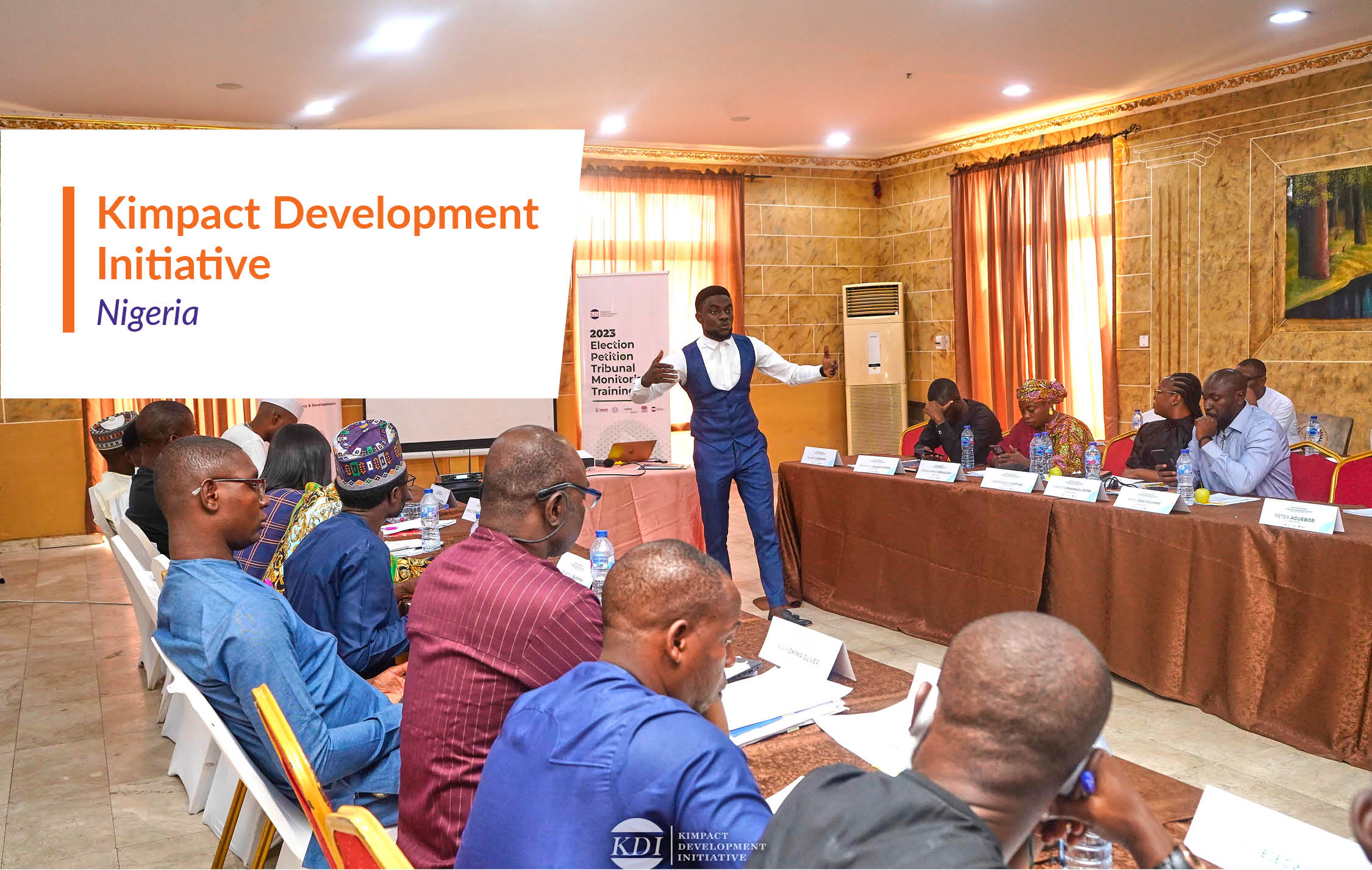Finalist
Justice Institutions
Judicial Reform
Technology
Share this
Contact information

Enhancing Democratic Resilience through Transparent Electoral Justice: Election Petition Tribunal monitoring in Nigeria
The Problem
The surge in petitions challenging election results in Nigeria reflects the increasing judicialization of elections, with 5,279 cases filed between 2003 and 2023. While legal redress is a constitutional right and crucial avenue to avoid post-election violence, the increasingly high influx of petitions not only inundates the judiciary but also subjects judges to potential pressure and attacks. Risks include the increased filing of frivolous claims, ethical lapses from judicial officers, social media attacks on the integrity of election judges, and election proceedings lacking compliance with electoral legal frameworks. These issues highlight the delicate balance that must be maintained when the judiciary is asked to adjudicate politically sensitive matters and act as the final arbiter of the elections. If politicians see that the judiciary can decide election outcomes, it can lead to judicial manipulation of election results.
The Approach
The Election Petition Tribunal Monitoring (EPTM), an initiative by Kimpact Development Initiative in collaboration with the International Foundation for Electoral Systems in 2019, is dedicated to safeguarding democratic values by overseeing Election Petition Tribunals (EPTs) to appellate courts throughout Nigeria. Covering all EPTs across the country's 36 states and the Federal Capital Territory, the project focuses on enhancing citizen understanding of the electoral justice system through the EPT Citizen Dashboard. The dashboard provides real-time access to data on over 1,200 petitions and judgements. KDI’s other key activities include creating and disseminating reporting on electoral justice reforms. The group carries this out by conducting legal framework audits and training monitors on election dispute resolution law. They then convene a technical review committee comprising retired judges, legal practitioners, and civil society to assess monitoring data and create a final report with recommendations which is presented across Nigeria’s six geo-political zones. This information is disseminated to the public and the EPTM project conducts direct engagement with judicial leadership to foster dialogue about implementing recommendations in justice institutions.
The Impact
-
KDI's recommendations from the EPTM led to amendments in the 2022 Judicial Electoral Manual.
-
Ten out of fifteen recommendations from the EPTM were included in the 2022 Electoral Act.
-
The project influenced the creation of 7 additional Court of Appeal Divisions to handle post-election disputes.
-
Over 37,000 visits to the dashboard within weeks of its launch, with over 403,000 users accessing the database since.
-
Over 108,000 citizens directly engaged via social media platforms under the project.
The Future
The project's next steps involve enhancing the EPT Citizen Dashboard by revamping its user interface and incorporating appellate court information. KDI aims to gather user feedback, implement technological advancements, and ensure reliability. They will also review and enhance their methodology, with the goal of expanding to other African countries, starting with Ghana and The Gambia.